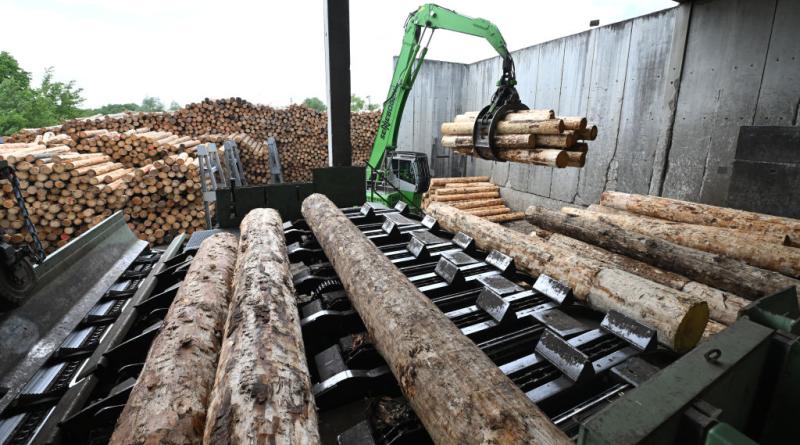Wood Pellet Giant Enviva Discloses a Financial Crisis

The company’s stock price plunged as its new interim CEO announced financial losses. Environmentalists had long questioned a business model they said was based on greenwashing.
A financial crisis has enveloped Enviva, the Maryland-based company that’s been harvesting large swaths of forest in the Southeast United States to make wood pellets for electricity production in the United Kingdom and Europe.
Enviva calls itself the world’s largest producer of biomass wood pellets, and in recent years it’s faced a cross-Atlantic campaign attempting to debunk the company’s claims of environmental sustainability. It has 10 pellet manufacturing plants in six states: North Carolina, Mississippi, Florida, Virginia, South Carolina and Georgia, where local residents and environmental groups have raised ecological and environmental justice concerns from logging practices and emissions from pellet production.
The company has active plans for two more pellet plants, one in Alabama and the other in Mississippi. But the future of the company is now in doubt, by its own admission.
Enviva’s stock price, which has been falling all year from a high of $51 in January, sank to under a $1 a share on Thursday after a new interim chief executive officer delivered a sobering third-quarter earnings call that raised questions about the company’s viability, blaming unfavorable wood pellet pricing, problems at a plant in Virginia, higher interest expenses and other factors.
In its third quarter Security and Exchange Commission filing, Enviva cautioned that “these conditions and events in the aggregate raise substantial doubt regarding the company’s ability to continue as a going concern.”
As investors rushed for the exits, Bloomberg reported a one-day stock price drop of 79 percent.
“To address these near-term headwinds we are moving with urgency to execute a multifaceted transformation plan,” said Glenn Nunziata, the company’s chief financial officer who, has also taken on the new role of interim chief executive officer, according to a transcript of the call. He promised a review of the company’s contracts and debt.
The company’s press office did not immediately respond to a request for comment.
In a press release, Thomas Meth, the former CEO who continues as company president, acknowledged “a disappointing quarter as our results came in meaningfully below our expectations due primarily to weakness in commercial activities. Given the significant near-term headwinds we’re addressing, I am focused on engaging with customers to ensure that our contracts reflect the value our product provides customers and returning to a business model centered on predictable, profitable take-or-pay contracts.”
Photo by Angelika Warmuth/picture alliance via Getty Images





